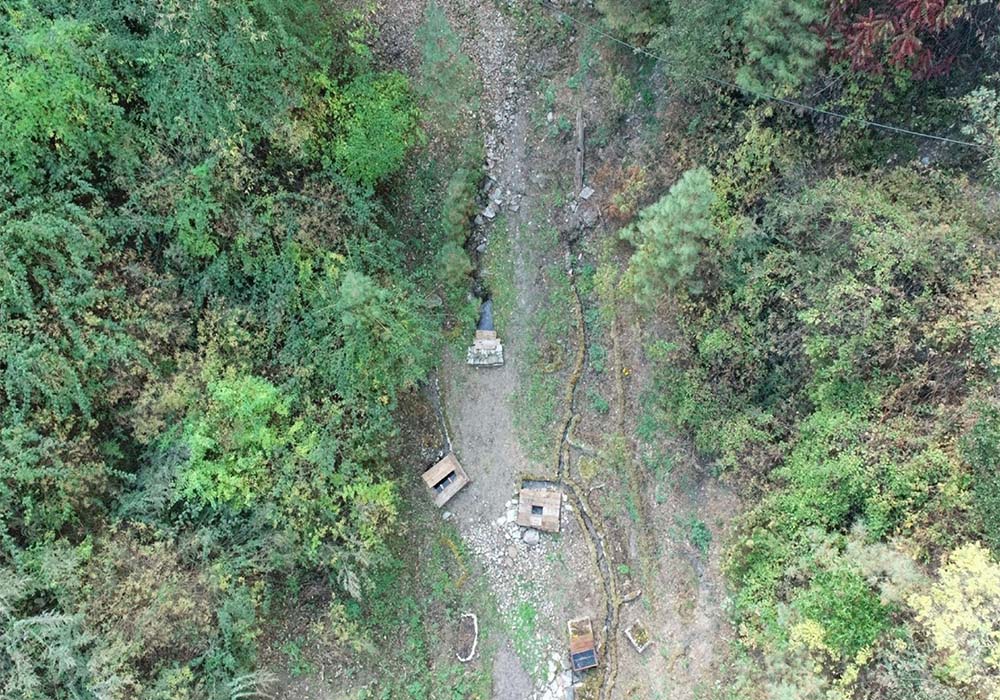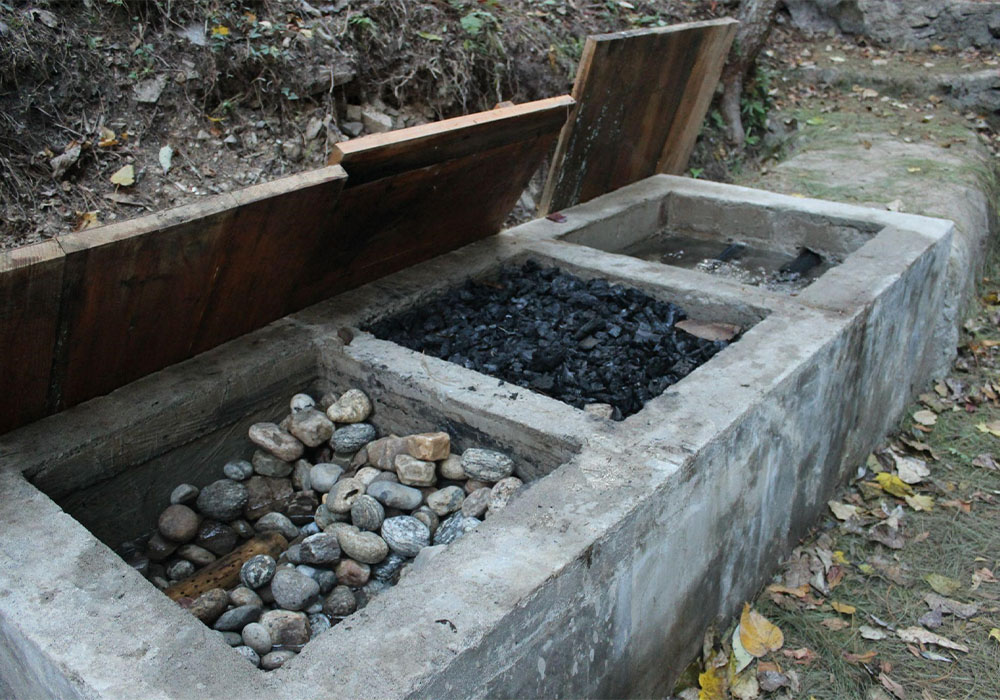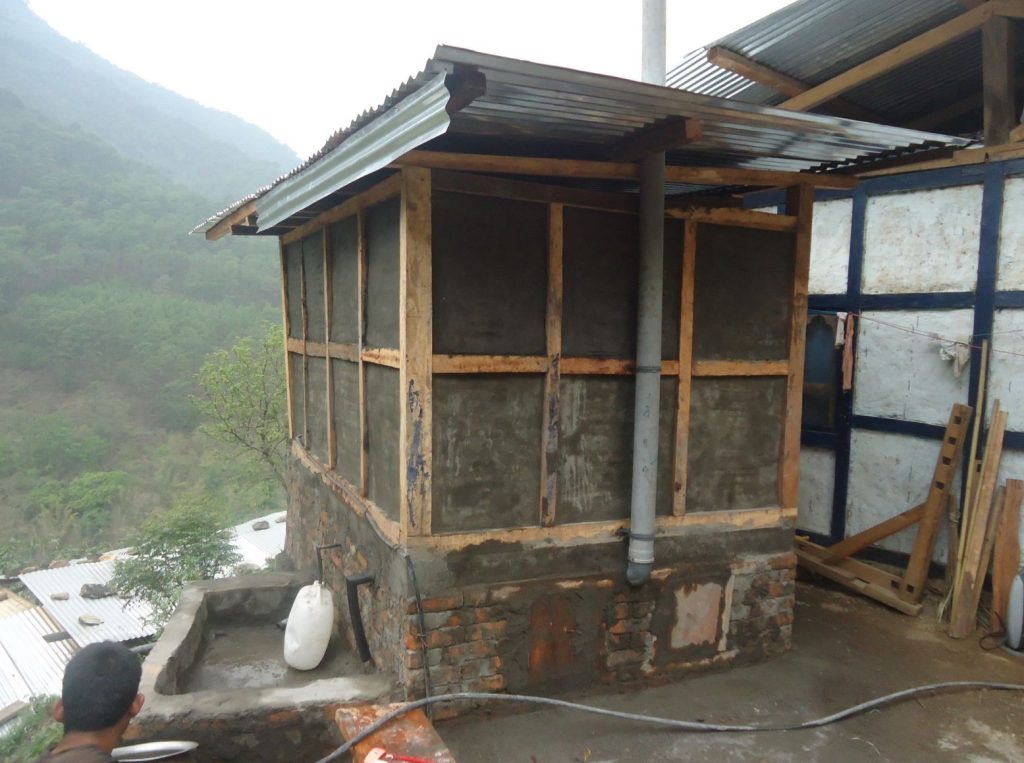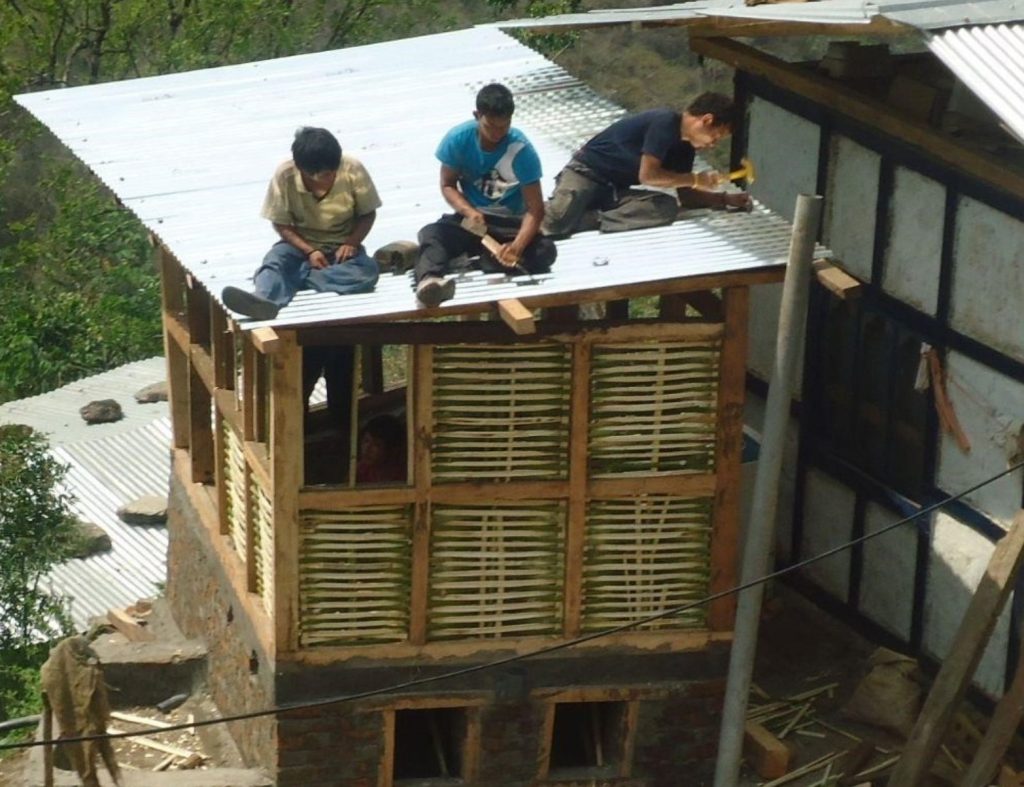Climate Change Adaptation Initiatives
a) Springshed Management


Springshed Management has become a central focus of the Tarayana Foundation in recent years, addressing the critical issue of drying springs in Bhutan. These springs are essential for providing water for drinking, irrigation, wildlife, and other domestic and commercial needs. However, due to the impacts of climate change, deforestation, and land-use changes, many of these vital water sources are drying up, leading to water scarcity and affecting the livelihoods of local communities.
To tackle these challenges, the Foundation has been proactive in strengthening community water governance by encouraging community involvement in managing water resources. This effort has led to the formation of 45 water user groups, fostering collective responsibility and local stewardship over water resources. Additionally, the Foundation has installed 40 rainwater harvesting systems to supplement water supply and has successfully rejuvenated or revived 24 springs out of the 54 springs assessed, following ICIMOD’s springshed management guidelines. These efforts were funded by International Climate Initiative (IKI) project through WWF-Germany and City of Vienna Project through the Climate Resilient Water Management in Rural Bhutan project.
Tarayana’s springshed management program has made significant contributions to the revitalization of drying springs in the mountain region, ensuring a sustainable water supply for local communities. These initiatives not only address the immediate water needs of communities but also build resilience against future climate-related challenges, ensuring that local communities have sustainable access to this crucial resource. The program’s participatory approach, which involves local communities in every step of the process, has empowered these communities to take ownership of their water resources. Additionally, by influencing policy and fostering regional collaboration, the program has set a model for sustainable water management in mountainous regions.
Overall, the springshed management program is a crucial component of Tarayana’s broader efforts to promote sustainable development and resilience in rural Bhutan.
b) Eco-san Toilet


Tarayana Foundation initiated constructing 64 eco-san toilets to tackle the pressing sanitation needs in water-stressed communities. These innovative toilets are designed as closed systems that do not require water, making them particularly well-suited for regions where water is scarce. Unlike traditional pit toilets, which can contaminate groundwater and pose health risks, eco-san toilets offer a superior, environmentally friendly alternative.
The design of these toilets is grounded in the principle of recovering and recycling nutrients from human waste. By converting excreta into compost, eco-san toilets turn what would otherwise be waste into a valuable resource for agriculture. This compost can be used to enrich soil, improve crop yields, and reduce the dependence on chemical fertilizers, which are often expensive and harmful to the environment.
Beyond their environmental benefits, these toilets play a crucial role in promoting hygienic practices. By providing a safe and sustainable sanitation solution, they help prevent the spread of diseases, improve overall health, and enhance the quality of life in these communities. The adoption of eco-san toilets also encourages a shift towards a circular economy, where waste is viewed as a resource, contributing to both sanitation and sustainability. Through this initiative, the Foundation is not only addressing immediate sanitation needs but also fostering long-term resilience and environmental stewardship in water-stressed areas.



